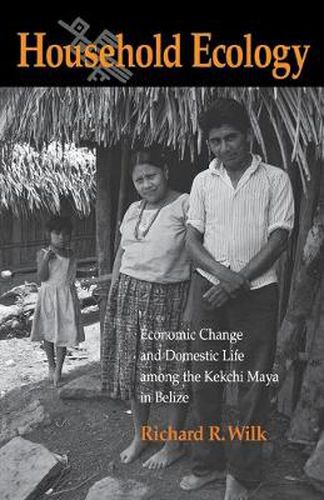Readings Newsletter
Become a Readings Member to make your shopping experience even easier.
Sign in or sign up for free!
You’re not far away from qualifying for FREE standard shipping within Australia
You’ve qualified for FREE standard shipping within Australia
The cart is loading…






Development and economic change are often seen as destructive to the family and to other traditional forms of social organization. Wilk’s study of household ecology reveals that the Kekchi Maya of Belize have responded by creating new forms of family organization, working together to face challenges posed by development. Not merely survivors of an ancient splendor, the Kekchi Maya build upon their rich heritage to approach such problems as ethnic strife and rainforest destruction as creative agents.
Wilk combines a wealth of detail on agricultural calendars, hunting practices, land tenure, and labor exchanges in a general interpretation of cultural and ecological transformation. He provides a comprehensive analysis of how tropical farmers survive in the difficult rainforest environment, tracing the ingenuity and adaptability of Mayan culture. Fully incorporating the historical context of ecological processes, he documents the importance of household organization in shaping the trajectory of ecological change and shows how delicate this adaptation can be. Analyzing household response to localized economic and ecological settings, Wilk argues that the transformation of the rural economy and of Mayan culture proceeds through the conjunction of global and local processes.
The Kekchi refuse to fit into the models of economic evolution set forth in existing scholarship. This sensitive and well-written study challenges current orthodoxies about economic and social change and suggests new approaches to rural development and household ecology.
$9.00 standard shipping within Australia
FREE standard shipping within Australia for orders over $100.00
Express & International shipping calculated at checkout
Development and economic change are often seen as destructive to the family and to other traditional forms of social organization. Wilk’s study of household ecology reveals that the Kekchi Maya of Belize have responded by creating new forms of family organization, working together to face challenges posed by development. Not merely survivors of an ancient splendor, the Kekchi Maya build upon their rich heritage to approach such problems as ethnic strife and rainforest destruction as creative agents.
Wilk combines a wealth of detail on agricultural calendars, hunting practices, land tenure, and labor exchanges in a general interpretation of cultural and ecological transformation. He provides a comprehensive analysis of how tropical farmers survive in the difficult rainforest environment, tracing the ingenuity and adaptability of Mayan culture. Fully incorporating the historical context of ecological processes, he documents the importance of household organization in shaping the trajectory of ecological change and shows how delicate this adaptation can be. Analyzing household response to localized economic and ecological settings, Wilk argues that the transformation of the rural economy and of Mayan culture proceeds through the conjunction of global and local processes.
The Kekchi refuse to fit into the models of economic evolution set forth in existing scholarship. This sensitive and well-written study challenges current orthodoxies about economic and social change and suggests new approaches to rural development and household ecology.